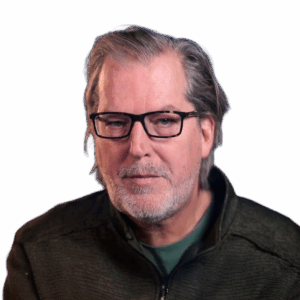Despite the improved standard of living that modern finance has enabled, it has also created an unsustainable economic system rife with systemic risk. Recent trends in debt, monetary inflation, interest rates and U.S. dollar hegemony are accelerating us toward a point of biophysical reckoning when the system can no longer function as intended, and nearly everyone’s financial comfort level will suffer in the ensuing recalibration back to reality. This week’s Frankly is a reflection on the financial industry’s history of accelerating through crisis after crisis, each time sowing the seeds of the next, bigger crisis. Is the mother of all speed bumps just ahead?
In French, we have a motto that says that a simple drawing is often better than a long explanation. Jean-Marc Jancovici Carbone 4 President
That’s very understandable because with left atmosphere thinking, one of the problems is that you see everything as a series of problems that must have solutions. Iain McGilchrist Neuroscientist and Philosopher
We can’t have hundreds and hundreds of real relationships that are healthy because that requires time and effort and full attention and awareness of being in real relationship and conversation with the other human. Nate Hagens Director of ISEOF
This is the crux of the whole problem. Individual parts of nature are more valuable than the biocomplexity of nature. Thomas Crowther Founder Restor
Show Notes & Links to Learn More
03:57 – Until the 1950s inflation was random
04:23 – Growth rate peaked in the 1970s
04:55 – Where does money come from?
05:11 – 80% of money comes from banks + the rest from governments + Steve Keen on Money
05:35 – Money is a claim on natural resources
06:45 – Recent interest rate hikes
07:45 – Total global debt is 350% – and increasing
08:01 – Nuclear war TGS Episode
08:23 – Responses to financial crisis were to use major support from central banks (Section: “When Rates Can Go No Lower”
08:45 – Zombie companies/governments
09:04 – Nate said “They they cannot service the debt” – this should be “cannot pay back the principle debt”
09:25 – Pension model is built on growth (expectations of 7% return) + UK Pension Crisis
09:55 – The state of Illinois is only 30% funded
10:22 – Leveraging
10:33 – 30-40% of the economy is the FIRE sector
12:15 – Oil peaked in 2018
12:25 – Mortgages are based on 2-3% interest rates and now they’re spiking
12:47 – Interest rates will affect energy investments and utility rates
13:01 – The largest cost of renewable energy is the interest payments
14:38 – Lehman Brothers and Too Big to Fail
14:56 – US dollar seigniorage
15:54 – Discussion of BRICS creating new currency system
16:30 – Bretton Woods System
18:06 – A barrel of oil is 4.5 years of human labor (Section 4.3)
18:24 – Modern Monetary Theory
20:01 – Yield Curve Control, Quantitative Easing
22:10 – 30% reduction in pay for everyone
More links: Tribute to David by Steve Keen






